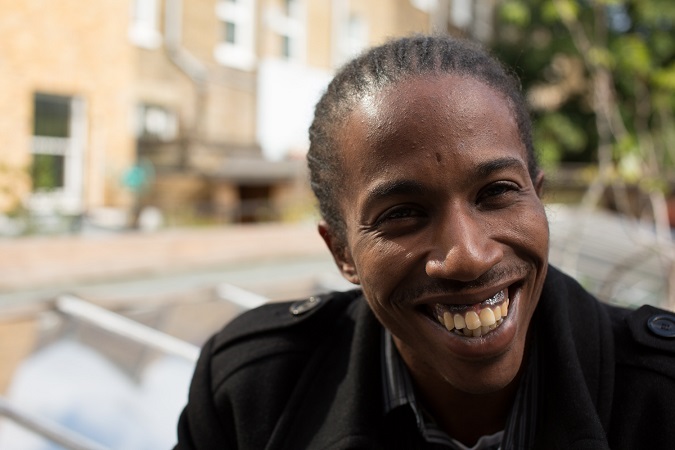Junior Smart, SOS Project

What does your social enterprise do?
SOS Project, established in 2006, works with young people involved in or at risk of being exploited through gangs and serious violence. It offers both interventions to those already involved and preventative work in schools through its sister project SOS+. Critically, the support comes from staff who have been there themselves and have made positive changes in their own lives. They are the ones who really understand what life is like for our clients, how difficult the choices may be to change and can become inspiring role models for them.
Back when we were established, SOS was carried out by a single caseworker – myself – and had a turnover of £20,000. Today, we have a 40-strong staff team and are looking to turnover £3.5million this year. Our work has extended beyond London to address problems across the UK. We have innovated, changing our service so it matches the changing needs of those young people, families and communities of those entrenched and because of this we were one of the first organisations to spot when young people were being exploited through county lines.
In 2008 we had record numbers of serious youth violence on our streets. One of those was the younger brother of a client I worked with. His tragic death was not because of gangs but because of school rivalry. Such was the impact that I felt we needed to do something about it. SOS+ our schools and community project was borne. Last year alone we reached over 24,000 young people.
Why are you passionate about this cause?
Whilst I was in prison I could see systemic failures in the penal system. I had a cellmate who had become so institutionalised that he seemed to enjoy prison. He was repeatedly serving short sentences and it seemed that the underlying issues for his troubles were ignored by the authorities. I couldn’t understand why I was the only one to see this and I started to think about what would be needed in order to break the cycle.
I am motivated by the young people I work with and their cause, pure and simple. I never want to be distant from their plight as I like to be hands-on and practical in the way I deal with things. I remember reading about the life of Mahatma Gandhi in prison and my favourite quote of his was ‘be the change you want to see in the world’. Every day we hear about someone being killed by violent means. Every day gives me an opportunity to make a positive difference to others.
Last year, the team had an active caseload of around 800 young people and nearly 300 made a successful gang exit – an excellent result given the complex and chaotic nature of the lives of the young people we are helping. The rest of the young people we are still supporting as we don’t give up on people.
Watch: Junior Smart talks about how he was inspired to change his life and the lives of others from within his prison cell.
What was your biggest challenge in starting your social enterprise?
It was the lack of belief that ex-offenders could be used to support other offenders. People said we would fail and that it shouldn’t be done. My dream was for ex-offenders to be seen as professionals. Despite it being an ongoing struggle, we now find ourselves welcomed around tables where key decisions are made. I now sit on the Government’s Serious Violence Taskforce and as a team we deliver training in best practice to professionals such as police and local authorities.
How has the School for Social Entrepreneurs supported you?
The School for Social Entrepreneurs was a great learning experience for me. When I first came to SSE I had a very limited understanding of how businesses and charities worked. Due to my previous life experiences I also had very constrained ideas about my own leadership ability and what could be possible. SSE believed in me and gave me every encouragement to reach further and go further.
Having previously dropped out of formal education I had felt education was not for me, but SSE’s atypical approach to learning really worked for me. It also brought me together with other social entrepreneurs who I could listen to and understand their difficulties and learning experiences, as well as who I could bounce my own ideas off.
What are your plans for the future?
I want to live in a future where young people’s lives are not needlessly taken away through a weapon or by making a choice that means they end up exploited or in custody.
SOS has been at the forefront of tackling county lines – whereby children and adolescents are exploited by gangs into transporting and dealing drugs – long before the issue hit the headlines. We have already scaled our work up across the UK. We will continue to grow our good reputation and share our expertise and best practice with professionals and organisations who are often struggling to address county lines and the social ills like increased crime that come with it. Unfortunately, the gangs are often a step ahead of the authorities. This is where we come in with a team who have frontline knowledge through their work and personal backgrounds. We know we have real solutions to bring and will continue to be the voice of the young people we help.
What would your advice be to a budding social entrepreneur?
Go ahead and do it – what’s stopping you?
